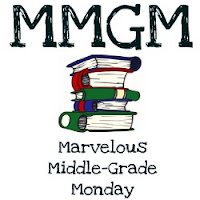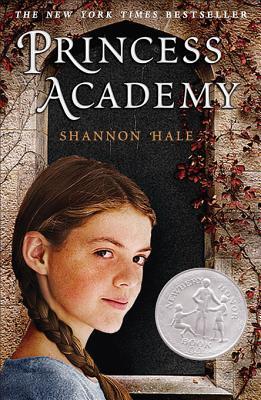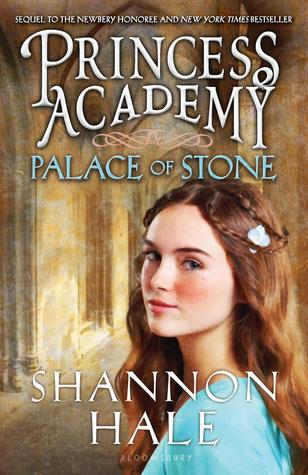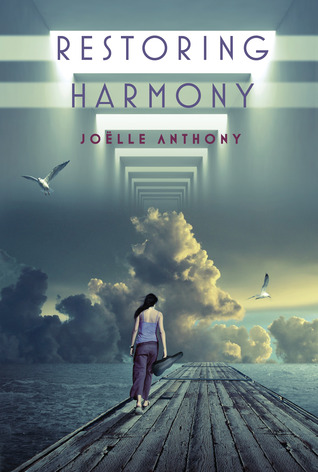Palace of Stone is the sequel to Princess Academy, which I read quite a while ago and really enjoyed, like I enjoy all Shannon Hale books. My memory of Princess Academy is a little vague, so I can say that Palace of Stone works as a stand-alone, though I think you'd want to read the first one just to get to know the characters, because they're all so great.
Shannon Hale is excellent at her genre: I'll call it upper-middle-grade. She writes stories that could be sweeping and epic and take 600 pages if she were an adult fantasy writer, and she condenses them down into perfectly plotted, simple-seeming character studies that still have all the epic themes and ideas, just in a neat little pre-teen-appropriate package.
Palace of Stone has a kingdom on the brink of revolution, a love triangle, betrayal, impossible choices, magic--I honestly don't know how she fits it all in! If I had one complaint it would be that there's so much more development she could have done--in fact, she could have written an adult fantasy. But Palace of Stone has exactly what it needs and not a word extra, and somehow she uses story to convey the most complex of ideas (it's really a story about politics and ethics) in a form a twelve-year-old can easily grasp.
The other characteristic of a Shannon Hale book is that she genuinely believes in the potential for good in everyone. If you want dark, edgy and violent, this is not the author for you. But if you want all your characters to have believable motivations, including the villains, if you like heart-wrenching dilemmas that don't have easy, good-vs-evil answers, and if you like stories in which people can redeem themselves even after screwing up, then you'll like Hale.
I really liked Miri, and I really felt her struggle to reconcile who she thought she was with who she might become. I also thought the romance was just right: realistic and sweet (and age-appropriate!).
Palace of Stone is a fresh, crisp, in-season apple (right now we have Sunrise apples, the first of the season: a bit tangy, very juicy and fragrant) cut up on a plate with some nice mild cheese like Red Leicester or Jarlsburg and thick slices of a really hearty bread.
I also highly recommend Hale's Books of Bayern series, and definitely check out her graphic novels, Rapunzel's Revenge and Calamity Jack.
 For other wonderful Middle-grade choices, head to Shannon Messenger's blog, where she collects all the MMGM-ers every Monday.
For other wonderful Middle-grade choices, head to Shannon Messenger's blog, where she collects all the MMGM-ers every Monday.





